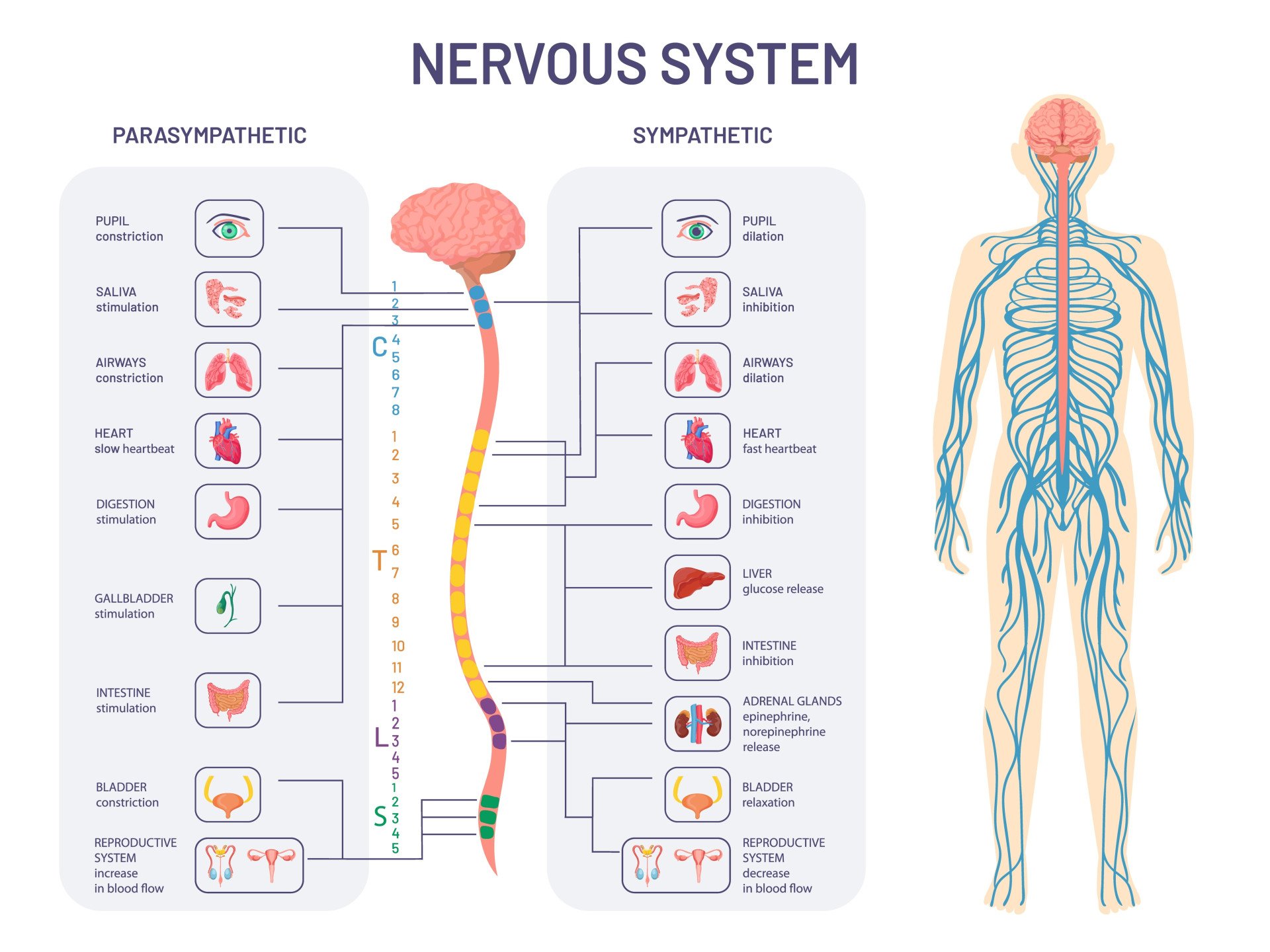The autonomic nervous system (ANS) is part of the peripheral nervous system (PNS) responsible for regulating involuntary bodily functions, such as heart rate, digestion, respiratory rate, and pupillary response.| Simply Psychology
The Central Nervous System (CNS) consists of the brain and spinal cord. It acts as the body's control center, processing sensory information and directing responses. The CNS coordinates both voluntary activities, like movement, and involuntary ones, such as breathing and heartbeat.| Simply Psychology
A neuron is a nerve cell that processes and transmits information through electrical and chemical signals in the nervous system. Neurons consist of a cell body, dendrites (which receive signals), and an axon (which sends signals). Synaptic connections allow communication between neurons, facilitating the relay of information throughout the body.| Simply Psychology



